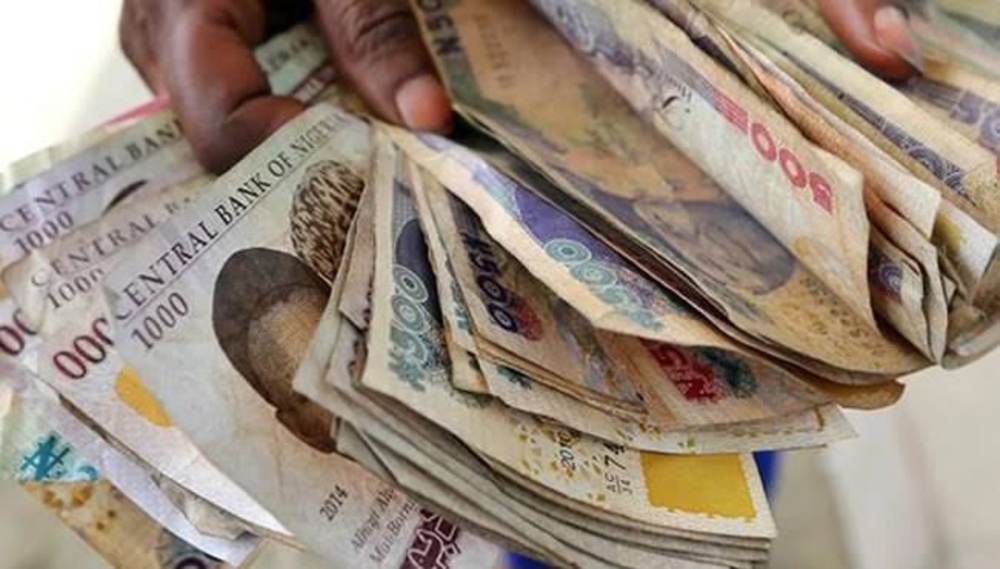The Economic and Financial Crimes Commission (EFCC) says its clampdown on naira racketeering, abuse, and the dollarisation of the economy played a crucial role in stabilising the country’s currency.
This was disclosed on Monday by the Director of Public Affairs, EFCC, Wilson Uwujaren, during an interview on ARISE News, where he outlined key reforms introduced under the leadership of EFCC Chairman, Mr Ola Olukoyede.
Speaking, Uwujaren said the EFCC had been deliberate in tackling economic crimes that weakened the Naira, noting that Olukoyede assumed office with a clear understanding of the challenges before him, having previously served as Chief of Staff to an Acting Chairman and later as Secretary to the Commission.
He explained that one of the chairman’s first major steps was the creation of a special task force to check Naira abuse and the dollarisation of the economy.
The move, he said, led to an extensive clampdown on currency racketeering and round-tripping which contributed significantly to the stabilisation of the Naira.
He recalled that Olukoyede had, during his Senate confirmation, outlined three priorities for his tenure, which were to use anti-corruption to stimulate the economy, operate within the rule of law, and promote professionalism within the commission.
Advertisement
“On those three scores, I think he has performed excellently well,” Uwujaren said.
Highlighting some achievements, he said the EFCC has investigated about 29,000 cases in the last two years, filed over 10,000 charges in court, and secured 7,500 convictions, describing these figures as proof of the commission’s renewed vigour under the current leadership.
On asset recovery, he revealed that the EFCC recorded “landmark achievements” in reclaiming proceeds of corruption, recovering hundreds of billions of Naira and tens of millions of dollars, adding that the recovered funds were not idle but channelled into national projects.
“We have the Student Loan Scheme and the Consumer Credit Scheme. Part of the proceeds of crime recovered by the EFCC was invested as take-off grants for those schemes. N50 billion for the Student Loan Scheme and N50 billion for the Consumer Credit Scheme,” Uwujaren said.
Disclosing that some non-liquid assets recovered from corrupt practices were being converted for public benefit, he cited the conversion of a recovered private university in Kaduna into the Federal University of Applied Sciences.
Advertisement
He stated that students would directly benefit from these assets once acquired through crime.
“For instance, we recovered 753 units of duplexes in Gambia, which is the most important recovery we achieved last year. The government will decide what to do with that,” he said.
Addressing public criticism that the EFCC targets cybercriminals more than politically exposed persons, Uwujaren argued that cybercrime poses a major threat to the nation’s economy.
He explained that the financial damage and international reputation loss associated with internet fraud made it a priority area for the commission.
He also dismissed claims that the EFCC engages in media trials, clarifying that information about ongoing investigations often reaches the public through suspects or their associates, not the agency itself.
“I can assure you that there is nothing like a media trial within the EFCC. What normally happens is once people are invited to appear before the commission, they make that information available to their associates and friends, and before you know it, the news is out there,” he explained.
Advertisement
Uwujaren further commended Olukoyede’s leadership style, saying reforms in staff welfare and internal structure had boosted morale and strengthened the EFCC’s operational efficiency.
He described Olukoyede as a leader who had “shown capacity and competence” in his first two years, adding that the commission was now more focused, professional, and impactful than ever.
“The good thing is that I think, from the court, Mr Olukoyede has acquitted himself remarkably well in these first two years of his stewardship. He has shown capacity; he has shown competence in the job, and I believe Nigeria stands to benefit from his leadership going forward,” he said.

